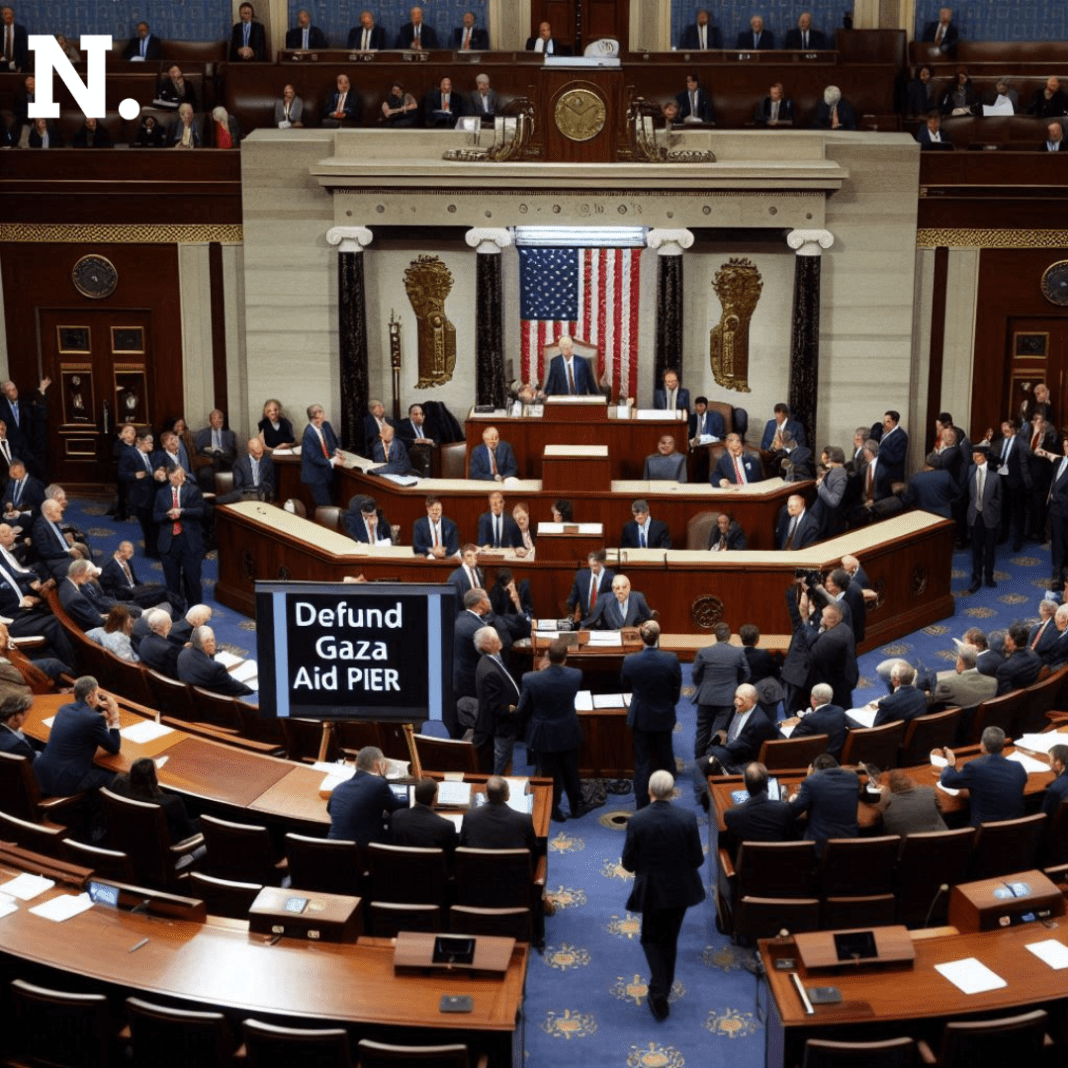In a significant development, U.S. lawmakers call for the defunding of the controversial Gaza Aid Pier, a military funded initiative aimed at providing humanitarian assistance to the Gaza Strip. The move comes against the backdrop of a spate of operational failures, financial mismanagement. And an uptick in geopolitical friction that has put a bipartisan call for reviewing the future viability of the project and its strategic value.
The Gaza Aid Pier was conceived to circumvent traditional land routes often barred by political and military difficulties. Within a larger strategy to bring direct humanitarian aid to the Gaza Strip, seeking to ensure that food, medicinal shipments, and construction materials reach the beleaguered population of Gaza on time, headed by the U.S. Department of Defense.
Overcoming Military Challenges
However, it seems that the Gaza Aid Pier has been dogged by a host of issues since it came into being. The most important challenges concerning the coverage of any such project are operational difficulties: delays in construction, overspending on construction, logistical nightmares, even security threats. While several sabotage attempts have reportedly hit the pier, multiplicity of scope further cripples operational efficiency.
Embezzlement has also come to the fore as audits revealed huge discrepancies in allocation and use. Ricula Critics for the project are wont to say that vast unwarranted monetary resources are being poured into it, with millions in tax-payer money already committed and return on investment not as projected. Successive rounds of corruption and waste allegations further fanned the flames of calls for its defunding.
Military Concerns and Geopolitical Strain
The Gaza Aid Pier is full of geopolitical meaning, having heightened tensions between the U.S. and different regional players,. Particularly Israel and Egypt. Who have fallen in line with their concerns that this pier is intended to be used for something other than it was designed for to fetch humanitarian aid. Gaza’s aid pier has the potential to be used for smuggling weapons and other contraband. Causing alarm among these nations and complicating their efforts to maintain security in the region.
Militant groups in Gaza can easily utilize the aid pier, which Israel argues lacks adequate security and poses a risk for them to strengthen their positions. This regime of the United States has continued alienating one of its closest regional allies because of this insistence.
Reaction of the Lawmakers and Legislative Action
A bipartisan group of lawmakers introduced legislation to defund the Gaza Pier on growing concerns. The proposed legislation seeks to stop any further financial support towards the project and divert the remaining funds. Towards alternative humanitarian initiatives that could be efficient and less controversial.
The Gaza Aid Pier has become an operational and financial disaster, said U.S. Senator James Mitchell from Texas, also a top endorser of the bill. In that region, the project fails to deliver on its promises and puts vital alliances at risk because we cannot continue to invest tax dollars in it. the potential to harm these important relationships.
Democratic Senator Maria Gonzalez: “Our commitment to humanitarian aid needs to go unabated, but at the same time, it must be effective and responsible”. These are standards by which the Gaza Aid Pier has not been able to measure up to, and more viable alternatives shall be considered.
Pivot to International NGOs in Gaza Aid
As the bill gains momentum through Congress, policy framers are now considering other channels to get that assistance to Gaza. Their proposals include augmented support for international NGOs already working in the area. Renewed commitments to UN agencies, and gearing up digital platforms to expedite aid distribution.
The legislation processes go through without a clear outcome yet for the fate of the Gaza Aid Pier. However, the bipartisan support to defund is a pointer to an emerging definite trend and a paradigm shift in the review of U.S. humanitarian strategies in conflict zones. This development is likely to set a similar precedent for how the U.S. chooses to go forward in such initiatives. Treading the tightrope between the imperatives of humanitarianism and the pragmatic and geopolitical considerations.
Conclusion: Humanitarian Aid Dynamics
While the defunding of the Gaza Aid Pier represents a significant policy shift. It also highlights the ongoing need for nuanced approaches to humanitarian aid. That balance humanitarian goals with broader military and diplomatic considerations. This approach aims to foster sustainable solutions that meet immediate humanitarian needs. While supporting long-term stability and security in conflict-affected regions.





